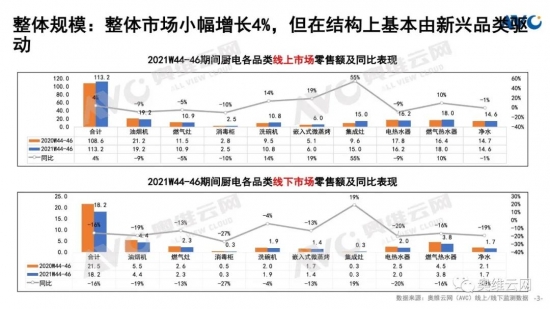过程诗学:生态文明时代的诗歌自觉——过程诗学国际论坛主旨发言
白鸦
今天,我们在生态文明视野下畅谈过程诗学,意义非凡。过程诗学理念的形成, 无疑受到生态文明这种时代力量的牵引,同时,它也必将成为推动生态文明进程的力量之一。以下,我分享有关过程诗学的一些思考,向大家请教。
在我看来,诗歌史就是诗歌不断自觉的历史。不同的发展阶段和境遇,诗歌自觉的内容不同。现代主义诗歌伴随着工业文明席卷全球,即是一次空前重要的诗歌自觉。但在历经了反传统的巨大热情之后,现代主义诗歌很快陷入迷茫。曾经情怀丰富的“人”,在巨大的现代机器体系中被零件化、商业化,成了“单面人”。诗歌也随之“满纸荒唐言”。
尔后,在对工业文明的深度反思中,诗歌走向了反传统更加彻底的后现代主义, 并被寄予再次自觉的厚望。但是,后现代主义诗歌展开的依然是无意义的游戏图景, 荒谬感无边无际,现代人的心灵残局一望无垠。也就是说,沸沸扬扬的后现代主义诗歌,与现代主义诗歌之间并没有自觉的边界,它其实至今也没有真正自觉,自然也无法引领诗歌破局。
为什么会这样?因为新一轮的诗歌自觉需要新的时代力量牵引。诗歌在等待。而此刻,一种新的时代力量正扑面而来!那就是从工业文明的反思中走向生态文明的时代力量。深陷于现代精神旋涡之中苦寻破局的诗歌,显然已经感知到这种蓬勃的力量,并受之牵引,开始引爆新一轮的诗歌自觉。这种基于生态文明时代背景的诗歌自觉,即是中西合璧的过程诗学。
过程诗学,源于中国传统文化与过程哲学的有机融合,倡导诗人把过程哲学的价值、生态、创造、新颖、关联、历险、互动等理念,与中国传统的天人合一、阴阳和谐等理念有机融合,统摄于当下的写作立场,以“过程之眼、生态之心、自由之笔”,拓展人对宇宙生命的认识,重构人的诸种关系,在生态文明时代积极建构后现代诗歌新图景,引领诗歌走出荒谬而无意义的游戏乱局。
过程诗学是迄今为止中西文化融合的最深入的文学理念,是后现代主义诗歌自觉的标志,更是生态文明时代诗歌自觉的标志。它以生态之心的创作动机、中西合璧的文化理念、直接自由的艺术力量,呈现世界的有机一体、万物的本来光辉。
过程诗学与汉语诗歌自觉
过程诗学是生态文明时代诗歌自觉的标志,那么,在汉语诗歌不断自觉的历程中, 过程诗学究竟处于什么位置?有何重要意义?现在,我对汉语诗歌的自觉历程做一次整体扫描,大家即可一目了然。
一般认为,从建安时期到隋朝,是中国文学独立价值的自觉期,自然也是“诗本位”的自觉期。那时候诗歌真正成为了诗歌。那之前,有《诗经》、《楚辞》的传统演绎;那之后,有此伏彼起的复古运动。汉语诗歌不断自觉的历程就这样汇流而成。其中,重要的汉语诗歌自觉,约有九次。
第一次自觉,是诗歌本来即有的自觉。《诗经》中的“思无邪”即是诗歌本来面目,蕴含着天人合一的自由和生态之心的吟唱。第二次自觉,是诗人自我的自觉。屈原“发奋以抒情”的感召,即是对诗人主体性的高扬,对孔子诗教的反动。尔后, 经过建安风骨的过渡,汉语诗歌在魏晋风流的时代气象中迎来第三次自觉,那就是 “以诗为诗”的诗本位的自觉。这一时期玄学汹涌,但玄言诗一直未能得势,终被山水诗和田园诗的生态之心淹没。中国传统哲学的“天人合一”理想,中国传统美学的 “庄禅”气韵,一直在动静相宜、阴阳和谐的山水田园诗中清扬,隐逸而活泼地传承。
第四次自觉,是诗歌的叙述自觉,体现为唐宋“以文为诗、以文为词、以诗为词” 的叙述革新对诗歌边界的拓宽。第五次自觉,是诗歌的当下性自觉。从先秦“诗言志” 的主体性转变,到汉代“美刺解诗”的政治性,再到唐代“合时合事”的当下性,诗歌美刺功能不断演进,使得诗歌的现实批判意义从诗教归向诗学的正途。
第六次自觉,是“诗与歌分离”的自觉,诗歌韵律的产生从声音发展到结构,初步体现在民间创作到文人创作的过渡中,但迄今为止,诗与歌分离的自觉未能真正完成。第七次自觉,是诗人的心气自觉,即诗人性情与语言性情合一。这种自觉贯穿整个诗歌史,源于庄禅境界,发挥于严羽、李贽、袁宏道诸论,升华于袁枚的“性灵说”,终究合于天人之境。
第八次自觉,以新诗运动为标志,是诗歌的现代主义自觉,也是个人主义、启蒙主义自觉。从晚清到“五四”,中国社会开启了现代性寻求,现代诗随之勃兴。中国现代诗与欧美情形类似,受益于法国象征派和自身诗歌变革之合力。中国自身的诗歌变革力量始于新诗运动,但在后来的发展中受意识形态影响而一波三折。1920 年前后,中国现代诗分出两条大脉,一脉侧重现代汉语叙述,一脉侧重精神史传承, 尔后的各种演变都未能挣脱这两条大脉。
从上世纪 50 年代至今,中国现代诗的发展一直伴随着两种特殊性:一是意识形态的特殊性——中国特色社会主义;二是艺术形式的特殊性——仅有百年历史的现代汉语系统。受两种特殊性之影响,中国现代诗出现了新文言体、欧化体、新华体等弊端,同时也潜伏着诗歌创新所需的独特资源和机遇。总体上,中国诗歌的现代主义自觉不及欧美彻底。数量不多的优秀诗篇中,并不十分浓重的工业文明焦虑, 混合着农业文明的现代性表达,而在城市移民的眼睛里,正在消失的故乡尚未来得及无影无踪。
第九次自觉,以过程诗学为标志,是诗歌的后现代主义自觉,也是生态文明时代的诗歌自觉。从上世纪末开始,后现代主义诗歌渐渐风靡中国,但在 21 世纪的前十几年,中国后现代主义诗歌没有自觉性可言,多数是对美国后现代主义诗歌的模仿。除了伪先锋式的盲目解构和语言形式的偶有创新,它与现代主义诗歌之间没有明显界限。一时间,人文简化式的解构冲动、气若游丝的文化传承、城郊结合部的语境、缺乏汉语性情的口语叙述……伴随着网络媒介的自由传播而泥沙俱下,此类诗歌显然无法彰显中国的特殊性。直到 2010 年以后,契合中国当下社会需求的过程诗学理念逐步成型,中国后现代主义诗歌才开始走向真正自觉,渐成特殊的中国性的反映。
众所周知,生态文明建设已成为中国的国家战略和基本国策。怀特海先生曾指出,过程哲学在思想脉络上更接近中国哲学。科布先生曾说,中国具有发展生态文明的天然优势。这一切,早已预示了中西文化有机融合的过程诗学将在中国呼之欲出。过程诗学基于对中国发展生态社会主义的历史机遇的把握,以及对现代汉语生态的积极建构,正在打破当下的诗歌乱局,掀开生态文明时代的汉语诗歌新图景。
过程诗学与欧美诗歌自觉
那么,在欧美诗歌不断自觉的历程中,过程诗学处于什么位置呢?它有何重要意义?现在,我对欧美诗歌的自觉历程也做一次扫描,同样一目了然。
现代主义自觉之前的欧美诗歌,也曾天真,那是诗歌本来即有的自觉。与汉语诗歌的自觉历程类似,欧美诗歌也曾有过诗人主体性自觉和诗歌独立价值自觉,但相较而言,从神性到人性的自觉更是欧美诗歌在现代主义自觉之前最刻骨铭心的记忆。那以后,行吟于草木和上帝之间的欧美诗歌闪烁着人性光辉,浪漫而不乏理性地照亮世界的暗角,给人类以鼓舞。这样的诗歌图景,一直持续到现代主义诗歌伴随着工业文明汹涌而来。
从标志性的 1857 年到 1900 年左右,现代主义诗歌在法国引导了鲜明的反传统自觉和语言形式颠覆,之后,这种自觉的力量辐射全球,与世界各大语系自身的诗歌变革力量汇流,形成地域特色鲜明的现代主义诗潮。欧美现代主义诗人普遍怀有深度揭示人类内心隐秘的企图,并因此而痛苦。现代人复杂的心灵体验、异化的诸种关系,使得诗歌不再天真。欧美现代诗人习惯了呈现荒谬感,并在荒谬感中深藏这样的危机心理——道德已消失在机器的链条上,我个人无法改变不完美的世界! 上世纪 40 年代以后,在普遍荒诞且夹杂着书卷气的现代诗歌氛围中,一部分美国诗人走出书房,他们干脆放弃使命感,反对并解构一切,并因此被冠以后现代主义诗人的帽子。这时候,诗歌革命依然如火如荼,诗歌变得更加具体也更有地域性, 他们企图以雅俗不分、眼花缭乱的叙事效果制造诗歌文本无法无天的自由。如此自由的企图以及界限模糊的混合艺术手段,带来了更加开放、多元、相对、包容、碎裂的后现代诗歌图景,芜杂而难以归纳。
这样的欧美后现代主义诗歌,让我们看到了什么?更彻底的反传统、依旧弥漫的荒谬感、淹死在游戏中的语言、无聊的时代美学、变本加厉的危机心理……这意味着:高调传播了六七十年的后现代主义诗歌其实没有真正自觉,甚至未能真正走出美国主场。除了彻底的解构游戏,它与现代主义诗歌之间找不到自觉的边界。找不到边界,是因为没有新的诗歌自觉。没有新的诗歌自觉,是因为没有新的时代引力。
而此刻,新的时代引力已经出现,那就是生态文明。在生态文明时代,中西合璧的过程诗学将推动欧美后现代主义诗歌走向真正自觉,从荒谬感和无意义的游戏中破局而出。当过程诗人怀着生态之心的创作动机重回使命,诗歌避免文化的技术化、工业化、商品化就成为了可能,诗歌唤回事物的神秘性、历史性就成为了可能, 诗歌在繁荣的焦味中找回乡愁就成为了可能。
过程诗学与生态文学
人类的生态文明进程并非今天才开始的,但刚才,我一直在用“此刻”描述它的到来。因为此刻,地球疫情汹涌,人类忧心忡忡。灾难中的人类从未如此热切地寄望生态文明改变未来。因为此刻,生态、病毒、诗歌之间有了更多的神秘关联。因为此刻,科技、文化、意识形态正在灾难中携手,合力引爆新的诗歌自觉。
不过,生态文明的时代引力反映在文学上,首先不是诗歌,而是更直观的生态文学和生态批评。事实上,上世纪 70 年代以来从美国兴起的生态批评潮流,已经对后现代主义诗歌产生一定的影响,这种影响在今天看来显得格外重要。
过程诗学理念显然蕴含着生态自觉,与生态批评家们期望建构的生态诗学体系有诸多近似。过程诗学的天人合一、主客未分理念,与生态文学的去人类中心主义、生态整体主义非常契合。但是,过程诗学不仅仅体现为生态文学。
过程诗学的生态之心,不是生态学或生态哲学概念,而是诗人真诚的创作动机。这种真诚是主客未分的、合乎自然与天道的真诚。真诚的创作动机体现着过程诗人对自然的基本态度。中国的过程诗人天然具有生态之心,与生俱来深怀天人合一的冲动,因为过程诗学是中国传统文化与过程哲学的有机融合,而中国传统文化根本命题“天人合一”即涵盖着人与自然的关系。任何一物本来具足,万物之间互具无碍, 生生不息。这种对世界的整体、有机、连续的领悟,是中国传统文化与过程哲学所共有,已深入过程诗人骨髓。甚至可以说。过程诗歌创作过程即是天人合一过程。
在过程诗人笔下,万物本来的价值第一,诗人赋予的意义第二。万物本来相通, 各自暗藏惊奇。所以,过程诗歌未必一定有意义,但一定有价值,它洋溢着万物本来的光辉。过程诗学虽然是后现代主义诗歌真正自觉的标志,但它随时可以打破诗歌边界。过程诗人可以像后现代诗人那样将世界的意义解构殆尽,露出本来面目, 但过程诗人不一定就是后现代主义诗人,他们可以随心所欲地使用现代或传统的形式赋予世界以意义,但首先要给万物的本来价值让路。
过程诗学,并非简单地呈现生态相关的道德诉求。它当然会抒写自然、抒写人与自然之关系、抒写自然与文化之关系,但这些都不构成识别过程诗学的必然标志。过程诗学强调生态之心的创作动机和身心体验过程,而非结果。过程诗学基于对工业文明的反思,重构导致生态危机的人类文化系统,以真诚的生态之心唤醒万物本具的价值,复活天人关系,收拾现代工业文明给人类造成的心灵残局。在过程诗歌中,跳进每一口井都可以游往大海,每一个生命都通往宇宙深处,每一声惊叫都是宇宙中的大事件,每一个稍纵即逝的碎片都是意义的全部,每一次瞬间的个人经验扩张都无限真诚。
中西合璧与诗歌破局
前面说了,过程诗学以生态之心的创作动机、中西合璧的文化理念、直接自由的艺术力量,呈现世界的有机一体、万物的本来光辉。刚才,我也扫描了世界诗歌的自觉历程,大家可以看出,过程诗学正是当下诗歌大转型与大破局的关键,因为它摸到了地球的命门,点中了时代的死穴。
最后,我想说一下中西合璧和诗歌破局。
中西合璧无疑是一个伟大事业。就当下诗歌发展而言,唯有中西合璧才能与时俱进地实现自觉和破局。而事实上,世界诗歌的自觉历程中,一直暗藏着东西方文化融合的理想,只是未能令人满意地实现。比如,欧美后现代主义诗歌的特征之一就是中西合璧倾向。欧美后现代诗人曾对中西合璧寄予厚望,他们认为,融合中国传统文化有利于反思工业文明的环境恶果与人性压抑,有利于修复人与自然等诸种关系,有利于诗歌从现代主义困境中破局。这种中西合璧倾向,体现在他们对中国天人合一观念、禅道思想、古典诗词意境的兴致上,但在文本实验中未能走向有机深入的融合,因为欧美诗人对中国传统文化的领悟存在困难。
今天,随着过程诗学理念的成型,真正意义上的中西合璧终于成为可能。过程诗学并非单纯的过程哲学影响下的写作理念,而是迄今为止东西方文化融合的最深入的文学理念,这是因为:过程诗学基于中国诗人对自身传统文化的领悟优势,基于中国发展生态社会主义的历史机遇,基于过程哲学与中国传统文化的思想共鸣, 基于生态文明这种全球化的时代引力。
关于诗歌破局,我认为,现代主义诗歌自觉以来,标志性的大破局主要有三次。第一次大破局,是 19 世纪 60 年代前后法国象征派诗歌的开启,它让现代主义诗歌弥漫到全球各大语系,千峰竞秀,并在美国铸就巅峰。第二次大破局,是 20 世纪40 年代美国后现代主义诗歌的开启,之后流派纷呈,名家辈出,但至今未能真正走出现代主义诗歌困境。第三次大破局,将是 21 世纪 20 年代中国过程诗学的开启, 它中西合璧,以生态之心的创作动机推动后现代主义诗歌真正自觉,完全有可能伴随着生态文明席卷全球。
如果要问生态文明时代诗歌何为?那就是:以中西合璧的过程诗学的自觉,引领后现代主义诗歌破局,推动地球生态文明进程。过程诗学将唤醒诗人深怀的酒神直觉和天人合一的冲动,为地球留下魔法、爱情和乡愁。
很抱歉,说了这么多,我仍未对过程诗学的具体内容展开介绍。关于过程诗学理念的具体阐释,请参看拙文《过程诗学提纲》和系列《过程诗学对话录》。这些阐释已引起部分中国诗人共鸣,他们正在成为过程诗学理念的实践者。目前,过程诗学在中国并非圈子化的诗歌团体,而是正在形成的诗歌自觉,已越来越深入地反映在当下的诗歌创作中。
2021 年 8 月,广州
(作者白鸦,过程诗学创始人。此文是在首届过程诗学国际论坛上的发言)
Process Theory of Poetry: The Self-Awareness of Poetry in the Age of Ecological Civilization
Bai Ya
It is very valuable for us to talk about process poetics today in the view of ecological civilization age. Undoubtedly, the concept of process poetics is derived from the latter and it will be inevitably one of the most important contributions to the construction of the age. In this forum, I'm glad to share some of my views on process poetics and further discussion on that will be welcome.
In my opinion, the history of poetry is the one of continuous self-consciousness with different content under the circumstance of different development era. Modern poetry, accompanied with global industrial civilization, is one of the most important types of poetry consciousness. Having experienced great passion of anti-tradition, modern poetry suffers great obsession. A man who was once rich in feelings, is now defined as cogs in the modern giant machine and becomes a unilateral one. So the poetry becomes absolutely absurd.
After a deep consideration of industrial civilization, poetry marches to postmodernism which leads to a thorough anti-traditionalism and is expected to be another consciousness to heal the civilization. Unfortunately, such poetry is nothing but a meaningless game with boundless absurdity in which the modern crippled heart is ceaseless, i.e., there is no difference between modern and postmodern poetry in consciousness. In fact, postmodern poetry is not a conscious one and can hardly show the right way.
Why? Because a now style poetry consciousness is waiting for a new time.
And now here comes a new one! That is ecological civilization which rethinks and innovates industrial civilization. The poetry obsessed and swirled in modern spirit seems to perceive its prosperous power now and has been led to ignite a new poetry consciousness which is also defined as Sino-western Process Poetics.
Process poetics, originated from the organic integration of traditional Chinese culture and process philosophy, advocates poets to integrate the value, ecology, creation, novelty, connection, adventure, and interaction of process philosophy with the traditional Chinese philosophy of harmony between man and nature, harmony between contradiction of Yin and Yang, etc. The concept is organically integrated and unified in the current writing standpoint. With the "eye of process, ecological heart, and free pen", it attempts to exploit people's understanding of cosmic life, reconstruct various relationships between people, and actively construct postmodernism in the ecological civilization age. The new picture perhaps leads poetry out of the absurd and meaningless chaos.
Process poetics is probably the deepest literary concept on the integration of Chinese and Western cultures so far. It is a sign of postmodernism poetry consciousness, and it isalso a sign of poetry consciousness in the ecological civilization age. It presents organic unity of the world and the original brilliance of all things with the creative motivation from the bottom of the ecological heart, the cultural concept of combining Chinese & Western culture, as well as the direct and free artistic power.
Process Poetics and Consciousness of Chinese Poetry
Process poetics is a sign of poetry consciousness in the era of ecological civilization. Then, what's the niche of process poetics in the conscious process of Chinese poetry? And what is its significance? Now, I try to take an overall scan of the conscious course of Chinese poetry to make everyone see it clearly.
It is generally agreed that the period from the Jian'an period(196 ~ 220)to the Sui Dynasty was a period of consciousness on the independent value of Chinese literature, which was also a period of poetry-based consciousness. Verse rhythm became real poetry at that time. Before that, there were traditional interpretations of "The Book of Songs" and "Songs of South China"; after that, there was a retro movement one after another. That is how the continuous conscious course of Chinese poetry converged. Among them, there are about nine important Chinese poetry types of consciousness.
The first consciousness is the one inherent in poetry. The purpose that "Pure Thinking without Evil" in the "Book of Songs" is the initial appearance of the Chinese poem, which contains the singing of the freedom of harmony between man and nature and the ecological heart. The second consciousness is the one of poets. Qu Yuan's call to "work hard to express emotions" is to promote the subjectivity of the poet and react to Confucius' poetic teaching. Afterwards, after the transition of Jian'an style, Chinese poetry ushered in the third self-consciousness in the romantic atmosphere of the Wei and Jin Dynasties, i.e., the consciousness of "taking verse rhythm as poetry". Metaphysics was surging in this period, but metaphysical poetry had not been able to prevail, and was eventually overwhelmed by the ecological heart of landscape poetry and idyllic poetry. The ideal of "Harmony between Man and Nature" of Chinese traditional philosophy, and the "Zen of Zhuangzi" spirit of Chinese traditional aesthetics, have been passed down in a secluded and lively pastoral poetry of landscape and idyllic poems that are suitable for movement and quietness and harmony between the universal contradiction of Yin and Yang in Chinese philosophy.
The fourth consciousness is a narrative consciousness of poetry, which is embodied in the broadening of the boundaries of poetry by the narrative innovation of "making essays be poems and lyrics, and lyrics to be poems" in the Tang and Song dynasties. The fifth consciousness is a present consciousness of poetry. From the transformation of subjective "Poetry Expressing Will" in the Pre-Qin Dynasty to "expressing political concerns and critics by poems" in the Han Dynasty, and then to "interpreting the present via poetry" in the Tang Dynasty, the function of poetry concerned with political criticism keeps on evolving from poetry education to poetics.
The sixth consciousness is the "separation of poetry and song". The generation of poetry rhythm develops from sound to structure, which is initially reflected in the transition from folk creation to literati creation. But so far, the consciousness in separation of poetry and song has not been truly accomplished. The seventh self-consciousness is the integration of the poet's inner consciousness, i.e., the poet's disposition and language disposition. The consciousness, derived from the state of Zen of Zhuangzi, runs through the entire history of poetry, illustrated by the theories of Yan Yu, Li Zhi, and Yuan Hongdao, sublimated from Yuan Mei's "theory of natural spirit", and finally united in the harmonization between nature and human.
The eighth consciousness, marked by the New Poetry Movement, is the one of modernism in poetry, as well as the consciousness of individualism and Elightenment. From the late Qing Dynasty to the "May 4th Movement", Chinese society began to exploitation for modernity, and modern poetry flourished with that. Modern Chinese poetry is so similar to the situation in Europe and America that all of them were benefited from the combined force of French symbolism and domestic poetic reforms. The motivation of China's poetic reform is originated from the New Poetry Movement although it was affected by ideology in its subsequent development. Around 1920, Chinese modern poetry separated into two major veins: one focused on modern Chinese narration and the other focused on the inheritance of spiritual history. Since then, there is no breakthrough out of the two in China's poetry evolution.
Since the 1950s, the development of modern Chinese poetry is accompanied by two particularities: one is the particularity of ideological socialism with Chinese characteristics; the other is the particularity of art form which is employed by the modern Chinese language system less than a century old. Affected by the two particularities, modern Chinese poetry appears in the New Classical Chinese Style, Europeanized Style, Xinhua Style and other shortcomings, so comes with particular resources and opportunities for poetry innovation. Generally speaking, Chinese modernist poetry is not as thorough as that of Europe and the United States. In the few excellent poems, there is little strong industrial civilization anxiety, mixed with the modern expression of agricultural civilization, and in the eyes of urban immigrants, the disappearing hometown has no time to vanish at once.
The ninth consciousness, marked by process poetics, is the postmodernist consciousness of poetry, and it is also the consciousness of poetry in the era of ecological civilization. Since the end of the last century, postmodernist poetry has gradually become popular in China, but in the first ten years of the 21st century, Chinese postmodernist poetry has no consciousness at all. Most of them are imitations of American postmodernist poetry. Except for pseudo-avant-garde blind deconstruction and occasional innovations in language forms, there is no clear demarcation between postmodernist and modernist poetry. For a time, such poems, which are agitated by simplified deconstruction of the humanistic style, the cultural heritage of the tradition is like gossamer, the context of the suburban junction and the oral narrative lacking Chinese temperament, transmitted freely via internet media and huge number of inferior information, and cannot reflect the Chinese culture. Not until 2010 the concept of process poetics that met the needs of China's current society gradually comes into shape. The Chinese postmodernist poetry becomes conscious and gradually reflects the unique Chinese feature.
It is well known that the construction of ecological civilization becomes China's national strategy and basic national policy. Mr. Whitehead once pointed out that process philosophy is closer to Chinese philosophy in ideological context. Mr. Cobb believes that China has a natural advantage of developing ecological civilization. All this has already foreshadowed that the process of organic integration of Chinese and Western cultures, poetics is about to emerge in China. By grasping the historic opportunity of China's development of ecological socialism and the active construction of modern Chinese ecology, Process Poetics is breaking the current poetry chaos and opening up a new vision of Chinese poetry in the era of ecological civilization.
Process Poetics and Consciousness of Western Poetry
So, what's the niche of process poetics in the conscious process of Western poetry? What is its significance? I'm also glad to scan the history of European and American poetry consciousness, which is also as clear as Chinese poetry.
The western poetry before modernist consciousness was also naive. It was the consciousness inherent in poetry. Similar to the conscious process of Chinese poetry, western poetry also has consciousness of subjective poets and independent value of poetry. But in comparison, the consciousness of the relation of divinity to humanity is one of the most unforgettable memories in western poetry before modernism. After that, western poetry that chanted between the grass and gods shone with the brilliance of human nature, romantically and rationally illuminating the dark corners of the world, and inspiring mankind. Such a picture of poetry continued until modernist poetry, accompanied by a surge of industrial civilization.
From the iconic 1857 to around 1900, modernist poetry led a distinct anti-traditional consciousness and subversion of language forms in France. After that, this consciousness radiated the world and converged with the revolutionary power of poetry in the world’s major language families and became a modernist poetry trend with distinctive regional characteristics. The western modernist poets generally attempted to reveal, and suffered from the secrets, of human beings in depth. The complex spiritual experience and alienation of modern people make poetry no longer naive. Modern western poets were accustomed to presenting absurdity in which hid the psychological crisis: morality had disappeared from the chain of machines, and I could not change the imperfect world by myself!
After the 1940s, in the atmosphere of modern poetry, which was generally absurd and mixed with literati fashion, some American poets walked out of the study. They simply gave up their sense of mission, opposed and deconstructed everything, and were therefore dubbed postmodernist poets. At this time, the poetry revolution was still surging, and poetry became more specific and more regional. They tried to create the lawless freedom of poetry text with the dazzling narrative effect of elegance and vulgarity. Such free attempts and blurry artistic methods brought a more open, diverse, relative, inclusive, and fragmented postmodern poetry landscape, but is complex and difficult to generalize.
What do we see from such western postmodernist poetry? More radical anti-tradition, a pervading sense of absurdity, language drowned in the game, boring aesthetics of the times, intensified psychological crisis... All that reveals the high-profile postmodernist poetry that has been spread for 60 or 70 years is not a true consciousness, and even fails to get out of the U.S. Except for a thorough game of deconstruction, there is no conscious boundary between it and modernist poetry because there is no new poetic consciousness and no grounding in the time.
But now, here comes the new era of gravity:That is the ecological civilization Age. In such an era, the combination of Chinese and Western process poetics will probably bring western postmodernist poetry to a true consciousness, and breaks out of the absurdity and meaningless games. As the process poet returns to his mission with the creative motivation of ecological heart, it will be possible for poetry to avoid technicalization, industrialization, and commercialization of culture, and it will be possible for poetry to recall the mystery and history of the world, and to find homesickness in the burnt flavor.
Process Poetics and Ecological Literature
The initiation of the process of human ecological civilization is not from today, although hitherto I keep on using "this moment" to describe its arrival. Because at "this moment", the earth is raging and human beings are worried. Humans in disasters never hoped so eagerly that ecological civilization will change our future; because at "this moment", there are more mysterious connections among ecology, viruses, and poetry; And technology, culture, and ideology are working hand in hand in the disaster to detonate a new poetic consciousness.
However, the gravitation of the time is reflected in literature first of all, not in poetry, but more in intuitive ecological literature and ecological criticism. In fact, the trend of Eco-criticism emerged in the United States since the 1970s has taken effect on postmodernist poetry, and appears to be very important today.
Obviously, the concept of process poetics contains ecological consciousness, which has many similarities with the ecological poetics system that ecological critics hope for. The concept of harmony of nature and man, and the undifferentiated subject and object of process poetry fit quite well with the de-anthropocentrism and ecological holism of ecological literature. However, process poetics is not only embodied as ecological literature.
The ecological heart of process poetry is not a concept of ecology or ecological philosophy, but the sincere creative motivation of poets. The motivation is derived from no discrepancy of the subject and the object, and is in line with nature and heaven. The motivation reflects the basic attitudes of process poets towards nature. Chinese process poets have an inborn ecological heart with the impulse to unite nature and human beings, because process poetics is an organic junction of traditional Chinese culture and process philosophy, and the fundamental proposition of traditional Chinese culture is "harmony of nature and man." It covers the relationship between man and nature. Everything has its own nature and has no hindrance to each other with endless prosperity. This overall, organic and continuous understanding of the world is shared by traditional Chinese culture and process philosophy, and has penetrated into the bones of process poets. It seems that the creation of process poetry is also the process of harmony between man and nature.
In the process poetry of poets, the original value of universe is the first, then the meaning given by poets the second. The universe is interlinked, and surprises are hidden in there. Therefore, process poetry may not necessarily be meaningful, but it must be valuable. It is permeated with the original glory of everything. Although process poetics is a true conscious sign of postmodernist poetry, it can break the boundaries of poetry at any time. Like postmodern poets,process poets can also deconstruct the meaning of the world and reveal their inborn nature.But process poets are not necessarily postmodern poets. Modern or traditional forms will be employed to give meaning to the world at their pleasure, but the initial value of the world will be always the prior.
Process poetics does not simply present related moral ecological appeals. It describes nature, the relationship between man and nature, and the relationship between nature and culture. But these do not constitute an inevitable sign of process poetics. Process poetics emphasizes the creative motive and the process of physical and mental experience of the ecological heart rather than the result. It is based on the reflection of industrial civilization, reconstructs the human cultural system that caused the ecological crisis, awakens the inherent value of all things with a sincere ecological heart, resurrects the relationship between nature and man, and cleans up the spiritual endgame caused by modern industrial civilization. By the process poems, every well will lead to the sea and the universe. Every scream will be an important event in the universe. Every fleeting fragment has its meaning, and every personal momentary surging will be infinitely sincere.
Combination of Chinese and Western and Poetry Breaks
As mentioned above, process poetics presents the organic unity of the world and the original values of universe by the creative motive of ecological heart, the cultural concept of combining Chinese and Western culture, and the direct and free artistic power. I'd also like to introspect the conscious course of world poetry so that the process poetry will be understood quite well to the great transformation and breakthrough of current poetry, for that it touches the fate of the earth and hits the key point of the time.
Finally, I'd like to talk about the combination of Chinese and Western and poetry breaks.
Undoubtedly,the combination of Chinese and Western is a great business. As far as the development of current poetry is concerned, only the combination of Chinese and Western could achieve consciousness and break through with the era. In fact, in the conscious process of world poetry, the ideal of combination of Eastern and Western cultures has been hidden, but it has not been satisfactorily put into practice. For example, one of the characteristics of western postmodernist poetry is the tendency of combining Chinese and Western. Some western postmodern poets hope for the integration of Chinese and Western cultures eagerly. They believe that the integration of Chinese traditional culture was conducive to reflecting on the environmental consequences of industrial civilization and the suppression of human nature, to repairing the relationship between man and nature, and to poetry breaking out of the dilemma of modernism. This tendency is reflected in their interest in the Chinese concept of harmony between man and nature, Zen Taoism, and the artistic conception of classical poetry. However, they fail to move towards an organic and in-depth integration in the text experiment because of some difficulties in the understanding of traditional Chinese culture by European and American poets.
Today, with the formation of the concept of process poetics, it's possible to combine the Chinese and Western poetry. Process poetics is not simply a writing concept of process philosophy, but the deepest literary concept of the integration of Eastern and Western cultures so far because it is based on the advantages of Chinese poets on understanding of the traditional culture, on the historical opportunity of China's ecological socialism, on the ideological resonance of process philosophy and traditional Chinese culture, and on the global gravity of ecological civilization.
Considering the poem breaks, I believe there are three major breaks since modernist poetry consciousness. The first break was the opening of French symbolist poetry around the 1860s. It made modernist poetry to permeate the world's major language families with prosperous fruits, and reached its summit in the United States. The second break was the inauguration of American postmodernist poetry in the 1940s. After that, there were many genres and famous poets, but they failed to get out of the predicament of modernist poetry. The third break will be the opening of Chinese process poetics this century. It combines Chinese and Western styles and promotes postmodernist poetry with the creative motivation of ecological heart to true consciousness which will possibly go along with the ecological civilization around the world.
Therefore, what's the purpose of process poetry in the era of ecological civilization? I believe that it lies in the consciousness of the process of combining Chinese and Western poetics leading to postmodernist poetry to break the endgame and to promote the process of global ecological civilization. Process poetry will awaken the poets' deep intuition of Dionysus and the impulse to harmony of nature and mankind, and will leave its magic, love and homesickness for the earth.
I'm sorry to say that I have not yet introduced the specific contents of process poetics. For further specific explanation of the concept of process poetics, please refer to the book "Process Poetics Outline" and the series "Process Poetics Dialogue" written by myself, in which the related interpretations are resonated with some Chinese poets who become practitioners of process poetics. Presently, process poetics in China is not yet a major poetry genre, but a forming poetic consciousness which is reflected in the current poetry creation.
Aug.20, 2021, Guangzhou, China
责任编辑:kj005
文章投诉热线:156 0057 2229 投诉邮箱:29132 36@qq.com











